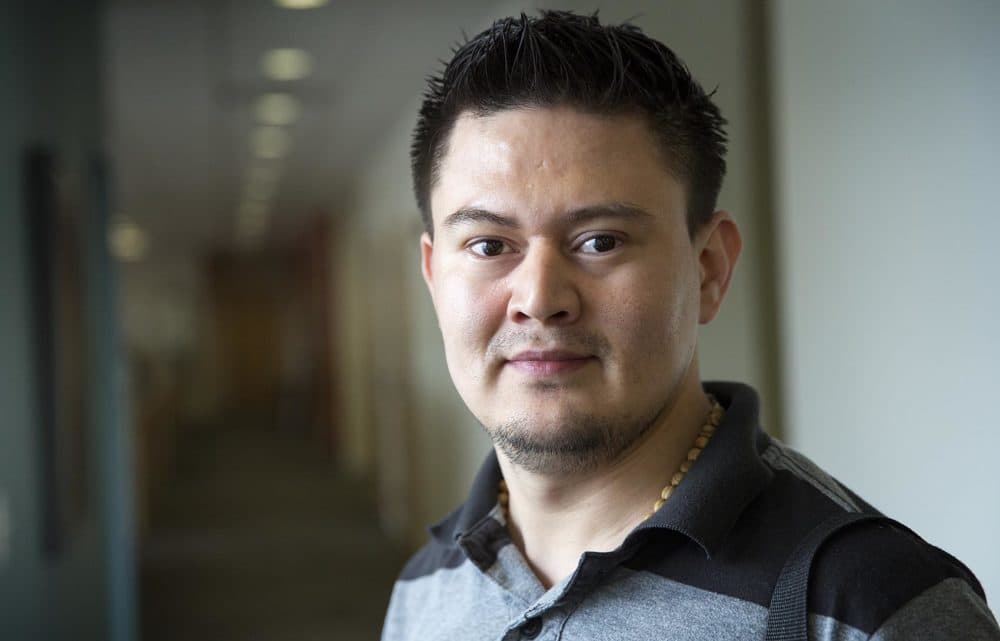Advertisement
'Opportunity' Drove This DACA Recipient To Leave El Salvador, Enter U.S. Illegally
Resume
Marlon Portillo came to the U.S. as an unaccompanied minor from El Salvador 12 years ago, a 25-day journey included an expensive and dangerous border crossing.
"I was 15 years old and I always wanted a higher education," Portillo says. "That was the main reason why I moved here."
Here & Now's Robin Young talks with Portillo, who's gone on to attend school and work in the Boston area, about his experience of entering the U.S. illegally and the ongoing debate about immigration issues.
Interview Highlights
On the journey from El Salvador
"For me it took 25 days. It was a long journey. It was very dramatic, hard. But I did it.
"First of all I was alone. So many days, you know. Sometimes in cars, sometimes in buses, sometimes walking. Sometimes there [was] not enough food or enough water."
On if he ever thought he should go back
"There was one moment crossing Mexico. My friends, they were caught by the authorities from Mexico. I was the only one who escaped. That was traumatic because I was alone, I got lost, I had no friends.
"But if I'd [gone] back, it would've been way more difficult to come back again."
On what it felt like to cross the border illegally
"For me, now I understand that better. I feel like I did wrongly, the wrong way. But when I was there, 15 [years old], I didn't know much about it. Obviously, for people like me, in my country, it's very difficult to get a visa. That is like a privilege only for the rich people, for the politicians."
On being a DACA recipient
"It opened a window for me. If you don't have Social Security, if you don't have a green card to go to college, it's way more expensive. It's like three times more expensive. So when I got my DACA, I got a work permit, I got my Social Security, so that window opened for me.
"Obviously I am very worried about anything happening. If DACA ends, my situation will get a little difficult. I am confident something beneficial will happen, but if it doesn't happen I am ready for anything. I already fight throughout my life. So many hard situations, hard challenges. I don't want to stop here."
On those who oppose people entering the U.S. illegally like he did
"We're talking here about people, human beings, people willing to do anything to put food on their table, the family table. People are going to do anything in order to survive because some cases, the people are running away, trying to save their own life. Facing violence, facing unemployment, just many issues."
"In order to understand this point, you also need to go to the root of the issue. Poverty, violence, unemployment, social conflict."
This segment aired on August 10, 2018.